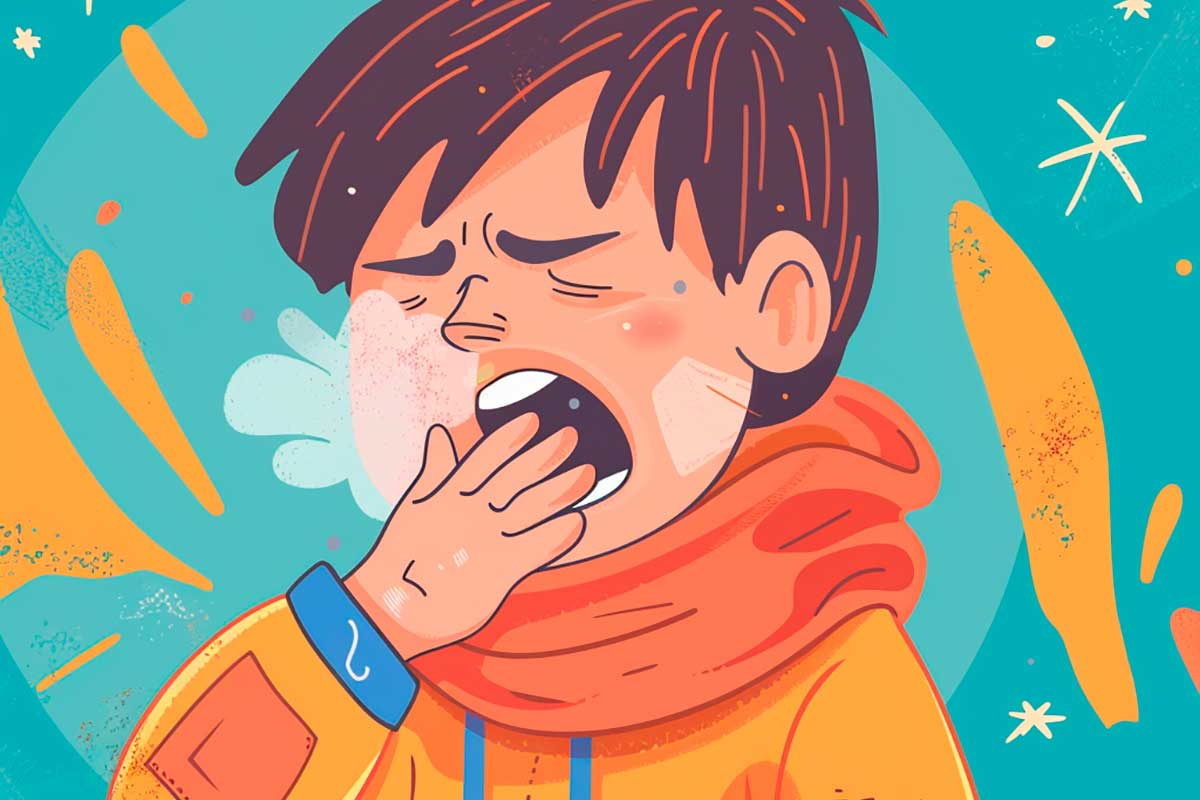Whooping Cough: Symptoms, Treatment, and Prevention
Whooping cough, also known as pertussis, is a highly contagious respiratory disease known for its severe coughing fits. It primarily affects infants and young children, but it can also impact adults. In this comprehensive guide, Clinic Consultation explores the symptoms, treatment options, and prevention strategies for whooping cough. Understanding this disease is crucial for safeguarding your health and the health of your loved ones.
What is Whooping Cough?
Definition and Overview
Whooping cough is caused by the bacterium Bordetella pertussis, which infects the respiratory tract and leads to severe coughing spells.
Understanding Whooping Cough:
- Highly Contagious: The disease spreads easily from person to person through respiratory droplets.
- Severe Coughing Fits: The hallmark of whooping cough is intense coughing that can last for weeks, often ending in a "whooping" sound when the person breathes in.
Clinic Consultation emphasizes the importance of recognizing the symptoms early to prevent the spread of the disease.
History and Impact
Whooping cough has been a significant public health concern for centuries, with periodic outbreaks even in modern times.
Historical Context:
- Epidemics: Before the introduction of vaccines, whooping cough was a leading cause of childhood illness and death worldwide.
- Vaccination Efforts: The widespread use of the DTaP (diphtheria, tetanus, and pertussis) vaccine has drastically reduced the incidence of the disease.
Clinic Consultation highlights the critical role of vaccination in controlling whooping cough and preventing outbreaks.
Symptoms of Whooping Cough
Initial Symptoms
The early stages of whooping cough can resemble a common cold, making it challenging to diagnose initially.
Early Signs:
- Runny Nose and Fever: Initial symptoms include a runny nose, low-grade fever, and mild cough.
- General Malaise: Patients may experience fatigue and general discomfort.
Clinic Consultation advises seeking medical attention if these symptoms persist or worsen, especially in young children.
Severe Symptoms
As the disease progresses, the coughing spells become more severe and characteristic.
Advanced Symptoms:
- Intense Coughing Fits: Severe coughing fits can last for minutes and occur multiple times a day, often followed by vomiting or exhaustion.
- Whooping Sound: The distinct "whoop" sound occurs when the person breathes in sharply after a coughing fit.
Clinic Consultation underscores the importance of recognizing these symptoms and seeking prompt medical treatment to manage the disease effectively.
Transmission of Whooping Cough
How Whooping Cough Spreads
Whooping cough spreads through respiratory droplets when an infected person coughs or sneezes.
Modes of Transmission:
- Close Contact: The disease is highly contagious, especially in close-contact settings such as households, schools, and daycare centers.
- Asymptomatic Carriers: Individuals who are infected but not yet symptomatic can still spread the disease to others.
Clinic Consultation emphasizes the need for vigilance and preventive measures to reduce the spread of whooping cough.
Risk Factors
Certain populations are at higher risk for contracting and experiencing severe symptoms of whooping cough.
High-Risk Groups:
- Infants and Young Children: Babies under six months old are particularly vulnerable and may experience life-threatening complications.
- Unvaccinated Individuals: Those who have not received the pertussis vaccine are at higher risk of contracting the disease.
Clinic Consultation advises ensuring that all family members are up-to-date with their vaccinations to protect those who are most vulnerable.
Treatment of Whooping Cough
Medical Treatments
Treatment for whooping cough typically involves antibiotics and supportive care to manage symptoms.
Treatment Options:
- Antibiotics: Early administration of antibiotics can reduce the severity of symptoms and prevent the spread of the disease to others.
- Hospitalization: Severe cases, especially in infants, may require hospitalization for monitoring and supportive care.
Clinic Consultation recommends seeking medical advice at the first sign of severe coughing to initiate appropriate treatment promptly.
Home Care and Management
In addition to medical treatment, supportive care at home can help manage symptoms and improve recovery.
Home Care Tips:
- Hydration and Rest: Ensure the patient stays hydrated and gets plenty of rest to aid recovery.
- Humidified Air: Using a humidifier can help soothe irritated airways and ease coughing spells.
Clinic Consultation suggests implementing these home care strategies to provide comfort and support during the recovery process.
Prevention of Whooping Cough
Vaccination
Vaccination is the most effective way to prevent whooping cough and protect against its severe complications.
Vaccination Strategies:
- DTaP Vaccine: Recommended for infants and children, the DTaP vaccine provides immunity against diphtheria, tetanus, and pertussis.
- Tdap Booster: Adolescents and adults should receive the Tdap booster to maintain immunity, especially pregnant women to protect their newborns.
Clinic Consultation supports vaccination programs and encourages everyone to stay current with their immunizations.
Public Health Measures
In addition to vaccination, public health measures play a crucial role in controlling the spread of whooping cough.
Preventive Measures:
- Quarantine and Isolation: Infected individuals should stay isolated until they have completed their antibiotic course to prevent spreading the disease.
- Hand Hygiene: Regular handwashing and use of hand sanitizers can reduce the risk of transmission.
Clinic Consultation highlights the importance of these measures in preventing outbreaks and protecting public health.
Conclusion
Whooping cough remains a significant public health concern, but with timely vaccination, early recognition of symptoms, and effective treatment, its impact can be minimized. Understanding the transmission, symptoms, and prevention strategies is crucial for protecting yourself and your loved ones. Clinic Consultation is committed to providing reliable information and resources to help you stay informed and healthy.
Frequently Asked Questions
1. How can I prevent whooping cough in my family? Ensure all family members are up-to-date with their vaccinations and practice good hand hygiene.
2. What are the first signs of whooping cough? Initial symptoms include a runny nose, low-grade fever, and mild cough.
3. How is whooping cough treated? Treatment typically involves antibiotics and supportive care to manage symptoms.
4. Who is most at risk for whooping cough? Infants, young children, and unvaccinated individuals are at higher risk.
5. Does Clinic Consultation offer resources on whooping cough? Yes, Clinic Consultation provides comprehensive information and resources on whooping cough and other health issues.
